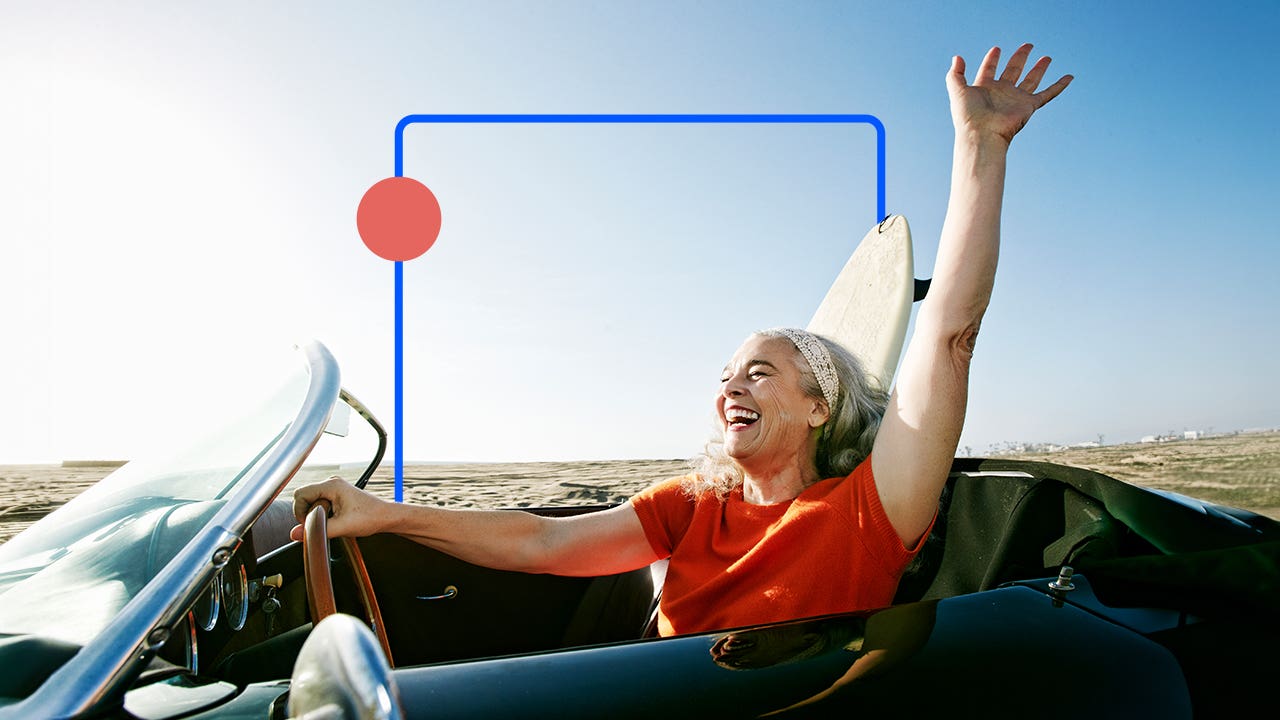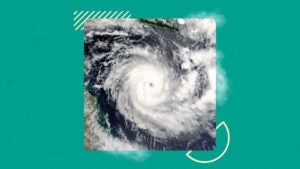SR-22 in California

Navigating the intricacies of auto insurance can be challenging. It can get even more difficult to navigate when you find yourself dealing with a major traffic violation, like a DUI or reckless driving charge. If you find yourself facing a situation like this, you may need to familiarize yourself with SR-22 insurance in California. This form, which verifies that you have met your state-required insurance responsibility, is often mandated by the state following serious traffic violations. Bankrate can help you understand the essentials of SR-22 insurance in California so you can get back on the road.
SR-22 insurance in California
Contrary to popular belief, an SR-22 is not actually insurance. In California, an SR-22 is a “Certificate of Financial Responsibility” required for certain drivers to prove they carry the state’s minimum required auto insurance coverage. The state’s minimum insurance requirements are:
- Bodily Injury Liability: $15,000 per person
- Bodily Injury Liability: $30,000 per accident
- Property Damage Liability: $5,000 per accident
Insurance companies in California are required to offer uninsured and underinsured motorist coverage. However, some drivers have the option to decline these coverages in writing. For drivers who have had their driving privileges revoked because of a major traffic violation or other offense, obtaining an SR-22 from their insurer might be required in order to have your license reinstated.
This certificate needs to be filed by your insurance company with the California Department of Motor Vehicles (DMV) as proof of insurance. The DMV is kept informed of your insurance status at each policy renewal period. A lapse or cancellation in the policy may result in the DMV being notified of the change, which could result in your driving privileges being revoked. Typically, the requirement to maintain an SR-22 in California spans three to five years. The period that you will have to maintain an SR-22 will be dependent upon your driving offense and what the court determines is necessary.
Who needs an SR-22 in California?
An SR-22 is typically mandated for drivers in California who have encountered serious driving-related violations. These might include, but are not limited to:
- DUI/DWI offenses: Convictions for driving under the influence of alcohol or drugs often necessitate an SR-22 filing.
- At-fault accidents while uninsured: Being involved in an accident without carrying the required insurance can trigger the need for an SR-22.
- Reckless driving: Citations for reckless or dangerous driving behaviors might require drivers to file an SR-22.
- Accumulation of excessive points: Accumulating too many points on your driving record from various traffic violations might lead to an SR-22 requirement.
- License suspension or revocation: Reinstating a suspended or revoked license typically requires an SR-22 filing to prove financial responsibility.
The specific circumstances that necessitate an SR-22 can vary, so it’s important to consult with the California DMV or a legal advisor if you’re uncertain whether your situation requires one.
Where can you get an SR-22 in California?
To obtain a California SR-22, drivers must contact an insurance provider licensed in the state who can file this certificate with the DMV, proving the driver meets the minimum insurance requirements. This process is typically required for individuals who’ve had their driving privileges suspended or revoked due to serious violations such as DUIs. The SR-22 form serves as a pledge from the insurance company to the DMV that the driver has and will maintain the necessary insurance coverage.
Cost of SR-22 insurance in California
While an SR-22 doesn’t directly impact your car insurance rate, the violation that necessitates it usually does, leading to substantial premium increases. According to July 2024 data analyzed from Quadrant Information Services, in California, the average annual cost for full coverage car insurance is $2,573, higher than the national average of $2,278. With a DUI conviction, California’s average rate jumps to $6,589, a 156 percent increase.
Besides higher premiums, most insurers also charge a small fee for filing the SR-22 form. If your license is suspended, you’re likely considered a high-risk driver, making an SR-22 form necessary to reinstate your license. Insurers assess risk before offering coverage, and higher risk means higher premiums. Finding affordable insurance in California can be challenging, especially with multiple violations on your record.
Not all insurers provide SR-22s, so you may need to shop around. Even after finding coverage, expect higher premiums than before. However, by driving responsibly, avoiding new violations like speeding tickets, paying premiums on time and maintaining continuous coverage, you can gradually reduce your premiums. After three to five years of a clean driving record, you may qualify for standard coverage and lower rates.
Non-owner SR-22 insurance for California drivers
What happens if you need an SR-22 and don’t own a car? Maybe your license was suspended because of something that happened while driving a friend or family member’s vehicle. If this happens to you, you may be able to get non-owner SR-22 insurance to reinstate your license.
First, you’ll need to buy non-owner car insurance. This type of policy provides liability coverage for you when you don’t own a car. Then, the insurance company can issue the SR-22 form to the DMV. Not all insurance companies sell non-owner car insurance, though, and not all companies file SR-22 forms, so you’ll need to shop around to find a company that will underwrite you.
Frequently asked questions
-
You’ll typically need an SR-22 for three to five years. This lets the DMV know that you are maintaining at least the state’s minimum required levels of coverage.
-
When your insurance company issues you an SR-22, they’re letting the DMV know that you are currently insured with at least the state’s minimum requirements. If you stop making your car insurance payments or cancel your policy, the carrier will notify the DMV. You could risk having your driver’s license suspended or revoked.
-
If you’ve been convicted of a serious moving violation, it may be trickier to find cheap car insurance, but it can be done. First, identify which carriers in California are known for writing cheap policies on average, then select a few and request quotes for the same coverage types and levels so you can compare. You may want to investigate and see which companies are not only the cheapest, but also known for providing car insurance to drivers that are considered high-risk.
-
The courts will determine exactly how long you are required to maintain an SR-22 in California, but typically, they are required for about three to five years.
-
To check your SR-22 status in California, you can contact your insurance provider directly. They can confirm whether your SR-22 form has been filed with the California Department of Motor Vehicles (DMV). Additionally, you can verify your SR-22 status by accessing your driving record through the California DMV’s online portal or by visiting a local DMV office. Ensuring that your SR-22 is active and up to date is essential for maintaining compliance with state requirements and avoiding any potential penalties or license suspensions.
-
SR-22 requirements for an ignition interlock device (IID) are often added for severe driving offenses such as DUI convictions. In California, if a court mandates the use of an IID, the driver must have the device installed in their vehicle, which prevents the car from starting if alcohol is detected on the driver’s breath.
In addition, the driver must file an SR-22 form, which serves as proof of financial responsibility and insurance coverage. California’s ignition interlock laws are mandated for different amounts of time based on the number of DUI offenses. For a first DUI offense, the ignition interlock device must be installed for a period ranging from six to 12 months. A second DUI offense extends the IID requirement to a period between 12 to 24. For a third DUI offense, the IID must be maintained for a duration of 24 to 48 months.
Why we ask for feedback Your feedback helps us improve our content and services. It takes less than a minute to complete.
Your responses are anonymous and will only be used for improving our website.
You may also like

Bank of America personal loan alternatives

How to find a home’s value in 2024

Experts say the 2024 hurricane season could break records. Here’s how to prepare





